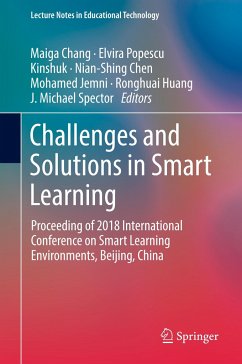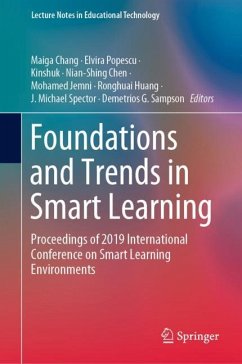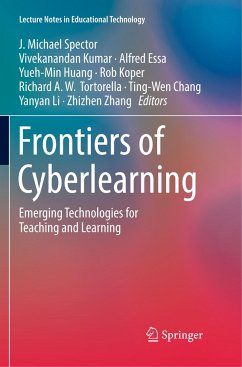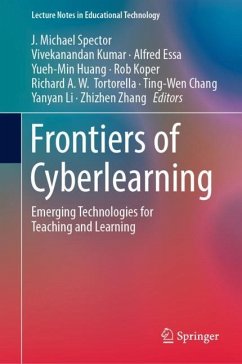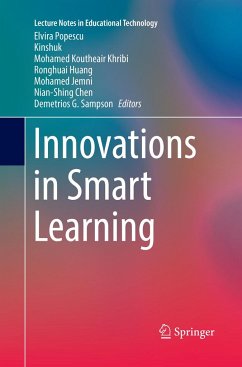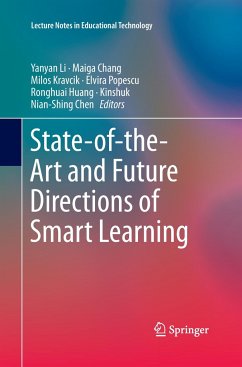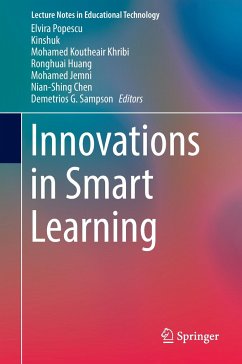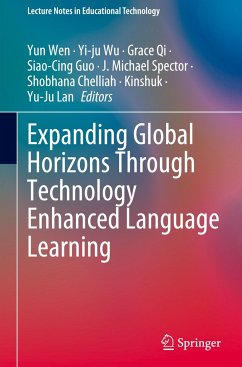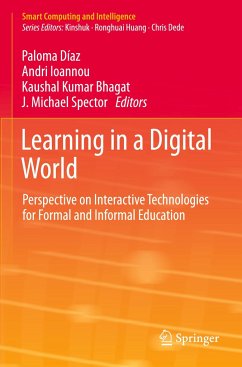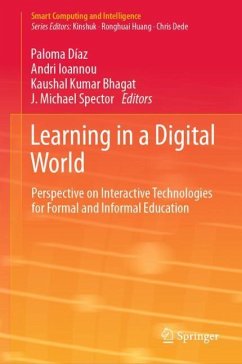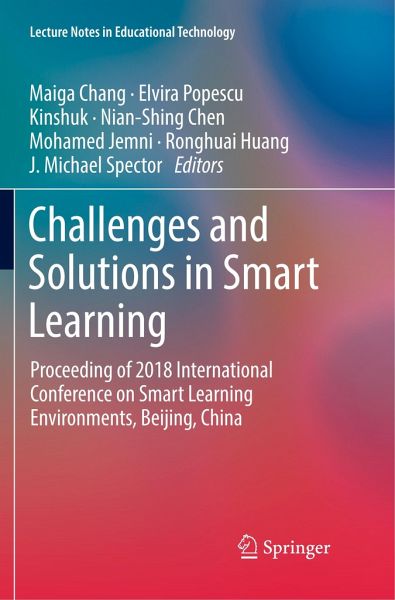
Challenges and Solutions in Smart Learning
Proceeding of 2018 International Conference on Smart Learning Environments, Beijing, China
Herausgegeben: Chang, Maiga; Popescu, Elvira; Kinshuk; Chen, Nian-Shing; Jemni, Mohamed; Huang, Ronghuai; Spector, J. Michael
Versandkostenfrei!
Versandfertig in 6-10 Tagen
129,99 €
inkl. MwSt.

PAYBACK Punkte
65 °P sammeln!
This book focuses on the interplay between pedagogy and technology, and their fusion for the advancement of smart learning environments. It discusses various components of this interplay, including learning and assessment paradigms, social factors and policies, emerging technologies, innovative application of mature technologies, transformation of curriculum and teaching behavior, transformation of administration, best infusion practices, and piloting of new ideas.The book provides an archival forum for researchers, academics, practitioners and industry professionals interested and/or engaged ...
This book focuses on the interplay between pedagogy and technology, and their fusion for the advancement of smart learning environments. It discusses various components of this interplay, including learning and assessment paradigms, social factors and policies, emerging technologies, innovative application of mature technologies, transformation of curriculum and teaching behavior, transformation of administration, best infusion practices, and piloting of new ideas.
The book provides an archival forum for researchers, academics, practitioners and industry professionals interested and/or engaged in reforming teaching and learning methods by promoting smart learning environments. It also facilitates discussions and constructive dialogue among various stakeholders on the limitations of existing learning environments, the need for reform, innovative uses of emerging pedagogical approaches and technologies, and sharing and promoting best practices, leading to the evolution, design and implementation of smart learning environments.
The book provides an archival forum for researchers, academics, practitioners and industry professionals interested and/or engaged in reforming teaching and learning methods by promoting smart learning environments. It also facilitates discussions and constructive dialogue among various stakeholders on the limitations of existing learning environments, the need for reform, innovative uses of emerging pedagogical approaches and technologies, and sharing and promoting best practices, leading to the evolution, design and implementation of smart learning environments.



